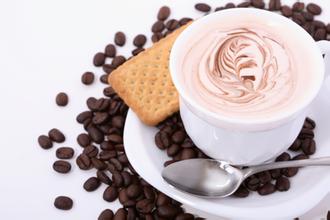Mellow taste of Puerto Rico Coffee Manor flavor characteristics of high-quality coffee beans
Take a deep breath and the aroma of coffee reaches the chest through your throat. In recent years, the number of coffee enthusiasts has increased sharply. Since coffee landed in Taiwan in 1884, coffee has been developed in China for more than 100 years. But Puerto Rico coffee is little known, only because its foreign market used to be mostly in Japan, after the March 11 earthquake, the Japanese market was depressed, Puerto Rico coffee suppliers found another way, it just entered the vision of the Chinese.
It is reported that Puerto Rican coffee has been the first choice for the Vatican and European royals since the second half of the 19th century, and was chosen by US President Roosevelt as the designated coffee for the White House state dinner. According to the restaurant barista, Puerto Rico coffee matures from September to December every year, is picked 100% by hand, is produced and processed in accordance with the most advanced and stringent quality control in the United States, and stored in parchment. Every piece of land where coffee is produced has an ID card, and every year the state finances research on integrated pest management projects, adopts non-chemical control plans, and legislates to strictly prohibit the reclamation of coffee-growing land by destroying tropical rain forests.
On a closer smell, the coffee exudes the spicy aroma of caramel and the aroma of lemon and vanilla. With a gentle sip, it first has a mellow taste similar to chocolate, then a delicate fragrance, and a slight fever in the throat seems to leave a residual temperature. the fragrance of the empty cup has not gone away for a long time. This kind of coffee does not need to add milk and sugar, the original taste is enough.
Echoing the cheerful music of the Caribbean, sitting under the open-air teahouse and tasting the amorous feelings of Puerto Rico, the quiet old streets and alleys, the naughty sun photocopied the trees on your face from time to time, as soon as I closed my eyes, I felt as if I had instantly arrived at the beach in the Caribbean. How romantic and cozy it is.
And Jaime Fortuno, the president of Escoki's Escogido Yauco agency, pays silent attention to all this work every year, even the smallest details. Fortuno is an investment banker who graduated from Harvard Business School. He was determined to seize every opportunity to open up a market for top coffee in Puerto Rico. He expects a maximum annual output of 3000 bags of 45kg each, less than 1 per cent of the island's total coffee production.
This is why Puerto Rico and Puerto Rico Yukot select Yauco Selecto, which is the manor bean, the joint brand of Puerto Rico San Pedro, Caracolillo and La Juanita.
Island Coffee-Puerto Rico
In fact, any kind of coffee will be given a unique flavor because of its origin, just like different music styles will always give you different feelings. Puerto Rico Yaoke coffee has the characteristics of boutique coffee, its acidity is very stable, full of particles, complete flavor, rich aroma. The reason why Yaocote chose coffee beans to be better than other producing areas on the island is that it is grown in high-altitude mountain areas, so it grows slowly and has rich fruit flavor, and it uses ancient coffee tree species, which have a unique flavor despite less yield. this is incomparable to some new tree species. Due to the abundant rainfall, rich soil and high-altitude microclimate zone, Yaoke coffee has all the qualities that gourmet coffee should have. Of course, Yaoke coffee is inseparable from the hard work of those coffee workers, who manage the whole process from planting coffee seedlings to post-harvest treatment.
And each kind of coffee has its own unique taste, when you taste Yaoke coffee, you will feel the unique acidic taste of Central American coffee, which is the most characteristic taste of Caribbean island coffee, so some people compare Yaoke coffee to the coffee with the most attractive tongue.

Important Notice :
前街咖啡 FrontStreet Coffee has moved to new addredd:
FrontStreet Coffee Address: 315,Donghua East Road,GuangZhou
Tel:020 38364473
- Prev

Burundian Coffee Flavor with Prunus Fruit Flavor introduction to boutique coffee beans in manor production area
Formerly known as Urundi, Burundi formed a feudal kingdom in the 16th century. Since the middle of the 19th century, the forces of Britain, Germany and Belgium invaded. The long-ruled monarchy, which was conquered by Germany in 1890, listed it as the territory of German East Africa and fell under the control of the Belgian army in 1916. After World War I, the League of Nations merged Rwanda-
- Next

Introduction to the flavor and taste of Dominican boutique coffee beans with pure and soft fragrance
Located in the Jarabacoa region near Siwao, it has the largest farm in Dominica, Ramirez Manor (RamirezEstates), which mainly grows Kaddura varieties, and most of the coffee produced is sold to Europe, the United States and other western countries and regions. Ramirez Manor itself produces coffee in an environmentally friendly way. Coffee from Dominica is made with A.
Related
- Detailed explanation of Jadeite planting Land in Panamanian Jadeite Manor introduction to the grading system of Jadeite competitive bidding, Red bid, Green bid and Rose Summer
- Story of Coffee planting in Brenka region of Costa Rica Stonehenge Manor anaerobic heavy honey treatment of flavor mouth
- What's on the barrel of Blue Mountain Coffee beans?
- Can American coffee also pull flowers? How to use hot American style to pull out a good-looking pattern?
- Can you make a cold extract with coffee beans? What is the right proportion for cold-extracted coffee formula?
- Indonesian PWN Gold Mandrine Coffee Origin Features Flavor How to Chong? Mandolin coffee is American.
- A brief introduction to the flavor characteristics of Brazilian yellow bourbon coffee beans
- What is the effect of different water quality on the flavor of cold-extracted coffee? What kind of water is best for brewing coffee?
- Why do you think of Rose Summer whenever you mention Panamanian coffee?
- Introduction to the characteristics of authentic blue mountain coffee bean producing areas? What is the CIB Coffee Authority in Jamaica?

